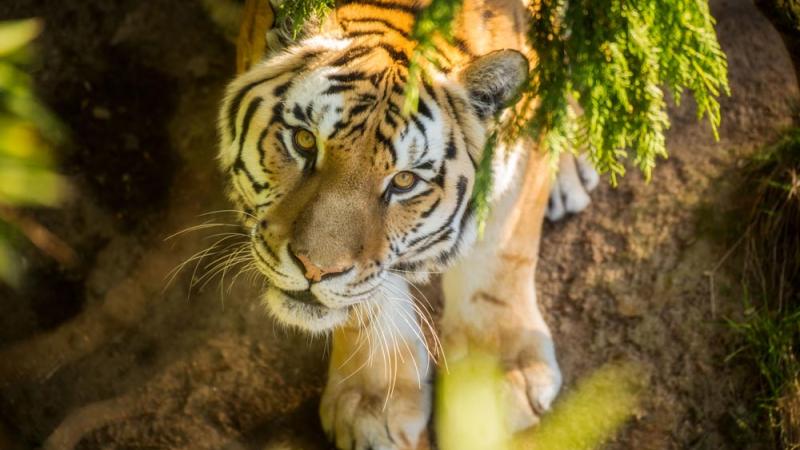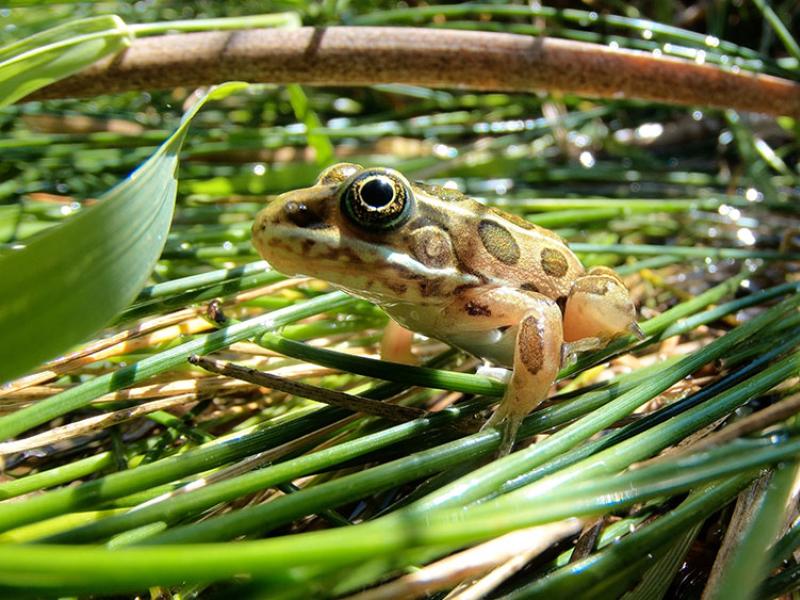Zoo says goodbye to beloved Amur tiger Mikhail

One day shy of his 20th birthday, Mik was the oldest of his extremely rare subspecies
The Oregon Zoo was deeply saddened today by the loss of one of its most beloved residents — Mikhail, a 300-pound Amur tiger whose playful exuberance belied his extreme old age.
"As old as he was, we knew, realistically, that this day would be coming," said Amy Cutting, who oversees the zoo's Amur cat area. "But even when you think you're prepared for it, you never really are."
Just one day shy of his 20th birthday, Mikhail — or Mik for short — was the oldest Amur tiger in any zoo accredited by the Association of Zoos and Aquariums, and he was considered to be among the oldest on the planet. He was humanely euthanized today following a decline in health related to his advanced age, Cutting said.
Wild Amur tigers typically live around 10 to 15 years, and the median life expectancy in zoos is 16 years for males, according to the AZA, which has established a Species Survival Plan for this highly endangered cat.
"Until recently, Mik was so playful and active you could easily think he was a much younger cat," Cutting said. "That's a huge testament to the care he received here. I couldn't be prouder of our keeper staff for everything they did to ensure he had a good life right up to the end."
To encourage activity and keep Mik's joints limber during his later years, caregivers taught the big cat to play "soccer": batting and chasing a big plastic ball along the floor of the moat surrounding his habitat.
Mikhail was born Oct. 31, 1998, at the John Ball Zoological Garden in Grand Rapids, Mich., and moved to the Oregon Zoo on Sept. 12, 2000.
Cutting said Mik's loss is all the more keenly felt coming so soon after the passing of Borris, another much loved and extremely old Amur cat, who died earlier this month.
Wild Amur tigers are at risk of extinction due to habitat loss and poaching. Around 500 are believed to remain in their home range. The Amur tiger species derives its name from the Amur River, which runs through the region of southeast Russia to which this subspecies is native.
More News

A leap forward: Endangered frogs hit survival milestone
For the first time, zoo-reared northern leopard frogs survived a winter in the wild at the Columbia National Wildlife Refuge.June 12, 2025

Tiny Endangered Turtle Hatchlings Arrive At Zoo
Seventeen northwestern pond turtle hatchlings, each about the size of a walnut, are making themshellves at home at the Oregon Zoo this summer.June 4, 2025

Awesome opossum! Orphaned baby finds new home at zoo
A tiny opossum found wandering earlier this month has made his way to a new home at the Oregon Zoo.May 28, 2025

